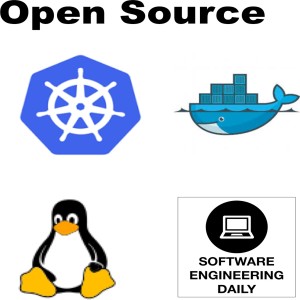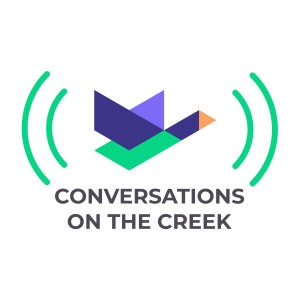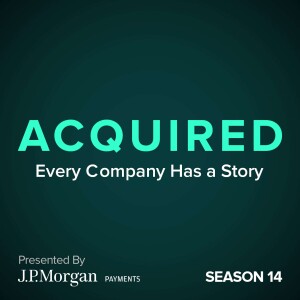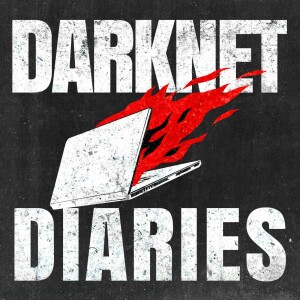

Open Source Archives - Software Engineering Daily
https://softwareengineeringdaily.com/category/open-source/feed/Episode List

Building a Unified Hardware API at Intel with James Reinders
oneAPI is an open standard for a unified API to be used across different computing accelerator architectures. This including GPUs, AI accelerators, and FPGAs. The goal of oneAPI is to eliminate the need for developers to maintain separate code bases, multiple programming languages, tools, and workflows for each architecture. James Reinders is an engineer at Intel and has experience with parallel computing spanning four decades. He joins the show today to talk about oneAPI. This episode is hosted by Lee Atchison. Lee Atchison is a software architect, author, and thought leader on cloud computing and application modernization. His best-selling book, Architecting for Scale (O’Reilly Media), is an essential resource for technical teams looking to maintain high availability and manage risk in their cloud environments. Lee is the host of his podcast, Modern Digital Business, an engaging and informative podcast produced for people looking to build and grow their digital business with the help of modern applications and processes developed for today’s fast-moving business environment. Listen at mdb.fm. Follow Lee at softwarearchitectureinsights.com, and see all his content at leeatchison.com. Please click here to see the transcript of this episode. Sponsorship inquiries: sponsor@softwareengineeringdaily.com The post Building a Unified Hardware API at Intel with James Reinders appeared first on Software Engineering Daily.

Building a State Machine Backend with Adam Berger
When Adam Berger was at Uber, his team was responsible for ensuring that Uber Eats merchants correctly receive and fulfill orders. This required them to think hard about engineering workflows and state management systems. Six years of experience at Uber motivated Adam to create State Backed, which is an open-source backend system written in Typescript. The platform is oriented around using state machines to model application logic, and automatically handles the associated persistence, infrastructure, and consistency. Adam joins the show to talk about state machines, why they’re the right paradigm to manage global application state, and what are the practical advantages of using state machines in a backend platform. This episode is hosted by Lee Atchison. Lee Atchison is a software architect, author, and thought leader on cloud computing and application modernization. His best-selling book, Architecting for Scale (O’Reilly Media), is an essential resource for technical teams looking to maintain high availability and manage risk in their cloud environments. Lee is the host of his podcast, Modern Digital Business, an engaging and informative podcast produced for people looking to build and grow their digital business with the help of modern applications and processes developed for today’s fast-moving business environment. Listen at mdb.fm. Follow Lee at softwarearchitectureinsights.com, and see all his content at leeatchison.com. Please click here to see the transcript of this episode. Sponsorship inquiries: sponsor@softwareengineeringdaily.com The post Building a State Machine Backend with Adam Berger appeared first on Software Engineering Daily.

Open Source Contributing with Brian Douglas
The open source coding philosophy has enormous appeal to many software engineers, and with good reason. Open source libraries, applications, and operating systems are now essential to the overall technology ecosystem. And the number of open source projects is only increasing. But many developers don’t know how to get involved in open source. Or, they may have even faced resistance when trying to make a pull request to their favorite open source codebase. Open Sauced is a platform to help developers get involved in open source development. While the number of GitHub stars on a project is often seen as a metric of success for a code base, Open Sauced focuses on the number of new contributors on a project. This number serves as a signal to help drive the platform’s recommendation system, which pairs its users with open source projects in need of developers. Brian Douglas is a former Developer Experience Lead at Netlify and he was the Director of Developer Advocacy at GitHub. He is also the founder and CEO of Open Sauced and he is our guest in this episode. Josh Goldberg is an independent full time open source developer in the TypeScript ecosystem. He works on projects that help developers write better TypeScript more easily, most notably on typescript-eslint: the tooling that enables ESLint and Prettier to run on TypeScript code. Josh regularly contributes to open source projects in the ecosystem such as ESLint and TypeScript. Josh is a Microsoft MVP for developer technologies and the author of the acclaimed Learning TypeScript (O’Reilly), a cherished resource for any developer seeking to learn TypeScript without any prior experience outside of JavaScript. Josh regularly presents talks and workshops at bootcamps, conferences, and meetups to share knowledge on TypeScript, static analysis, open source, and general frontend and web development. You can find Josh on: Bluesky, Fosstodon, Twitter, Twitch, YouTube, and joshuakgoldberg.com. Please click here to see the transcript for this episode. Sponsorship inquiries: sponsor@softwareengineeringdaily.com The post Open Source Contribution with Brian Douglas appeared first on Software Engineering Daily.

Temporal with Max Fateev
There are countless real world scenarios where a workflow or process has multiple steps, and some steps must be completed before others can be started. Think of something as simple as cooking dinner. First you look up a recipe, then you write down the ingredients you need, you go shopping, and then you cook. These steps must be run in a certain order, and the state of the workflow must be tracked throughout. Workflow management is everywhere in the software world, and today it’s common for teams to engineer custom solutions. This makes sense, because creating a general-purpose solution for workflow management is a hard conceptual problem, and perhaps an even harder engineering challenge. Maxim Fateev has a deep background engineering distributed systems and workflow management services at Google, Amazon, and Microsoft. In 2015, he joined Uber and helped create the open-source project, Cadence, which is an orchestration engine to execute asynchronous long-running business logic. The success of Cadence led Max to co-found Temporal, which is an open-source programming package for workflow execution. Max joins the show today to talk about the engineering challenges at Temporal, the concept of “durable execution”, how he organizes his engineering teams, and more. Sean’s been an academic, startup founder, and Googler. He has published works covering a wide range of topics from information visualization to quantum computing. Currently, Sean is Head of Marketing and Developer Relations at Skyflow and host of the podcast Partially Redacted, a podcast about privacy and security engineering. You can connect with Sean on Twitter @seanfalconer. Please click here to see the transcript for this episode. Sponsorship inquiries: sponsor@softwareengineeringdaily.com The post Temporal with Max Fateev appeared first on Software Engineering Daily.

Building Pieces.app and the Future of Developer Productivity with Tsavo Knott
Ongoing advances in generative AI are already having a huge impact on developer productivity. Tools like GitHub Copilot and ChatGPT are increasing the velocity of code development, and more advances are on the horizon. However, an ever-growing challenge for developers is how to manage their coding resources – things like code snippets, website links, messages, and screenshots. This is hard for individual developers, but even harder for teams. Tsavo Knott is the Co-Founder and CEO of Pieces. Tsavo thinks deeply about developer productivity and he joins the podcast today to talk about how Pieces is using AI to automate the process of saving, curating, and iterating on coding resources for developers and teams. Full Disclosure: Pieces is a sponsor of Software Engineering Daily Mike Bifulco is CTO and co-founder of Craftwork. He’s also a developer advocate, writer, podcaster and serial startup founder. In past lives, Mike worked for Google, Stripe, Microsoft, and Gymnasium. Mike is also co-founder of APIs You Won’t Hate, a community for API Developers on the web. Mike’s publishes a weekly newsletter for product builders called Tiny Improvements at mikebifulco.com. Mike is on Mastodon at https://hachyderm.io/@irreverentmike Please click here to view this show’s transcript. Sponsorship inquiries: sponsor@softwareengineeringdaily.com The post Building Pieces.app and the Future of Developer Productivity with Tsavo Knott appeared first on Software Engineering Daily.
Create Your Podcast In Minutes
- Full-featured podcast site
- Unlimited storage and bandwidth
- Comprehensive podcast stats
- Distribute to Apple Podcasts, Spotify, and more
- Make money with your podcast












